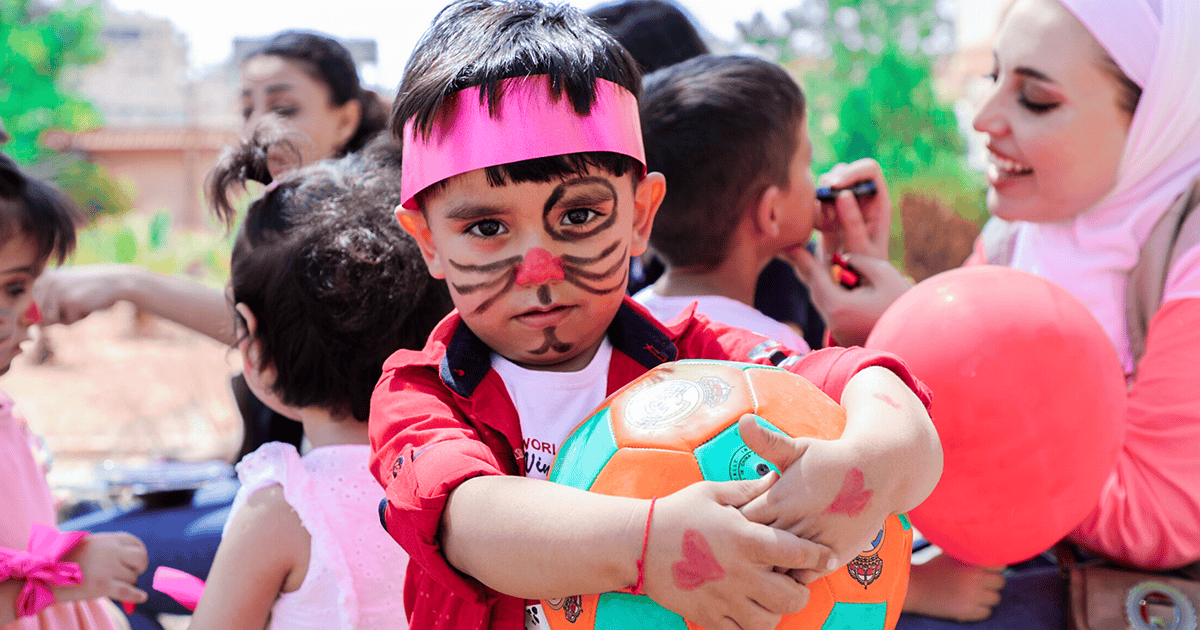تعتبر مرحلة الطفولة من أهم المراحل التي يمر بها الإنسان، حيث يتعلم الطفل خلالها العديد من المهارات الأساسية التي تشكل أساساً لبناء شخصيته وتطوير قدراته الأكاديمية والاجتماعية. من بين العوامل التي تلعب دوراً محورياً في هذه المرحلة هي "اللعب" و"التفاعل الاجتماعي".
لكن كيف يمكن لهذين العنصرين "اللعب" و "التفاعل الاجتماعي" أن يساهما في تطوير مهارات طفلك الدراسية؟ هذا ما سنستعرضه في هذا المقال:
1. اللعب كأداة تعليمية
اللعب ليس مجرد وسيلة للترفيه والتسلية، بل هو أداة تعليمية قوية تسهم في تطوير مهارات الأطفال الفكرية والاجتماعية. من خلال اللعب، يتعلم الأطفال حل المشكلات، التفكير النقدي، والإبداع. على سبيل المثال، عند بناء مجسمات من المكعبات، يتعلم الطفل كيفية التركيب والتفكير الهندسي، وعند لعب الألعاب التخيّلية، يعزز الطفل قدراته اللغوية والإبداعية.
وفقاً لدراسة أجرتها *American Academy of Pediatrics*، اللعب الحر يتيح للأطفال الفرصة للتعلم من خلال التجربة والخطأ، مما يعزز من قدرتهم على اتخاذ القرارات وتطوير مهارات التفكير النقدي.
2. التفاعل الاجتماعي وتطوير المهارات اللغوية
التفاعل الاجتماعي مع الأقران هو جزء لا يتجزأ من عملية التعلم. من خلال التفاعل مع الآخرين، يتعلم الأطفال كيفية التواصل بشكل فعّال، مشاركة الأفكار، والاستماع إلى الآخرين. هذه المهارات الاجتماعية تُعتبر أساسية في البيئة المدرسية حيث يحتاج الطفل إلى التواصل مع المعلمين وزملائه.
أشارت دراسة من *American Psychological Association* إلى أن الأطفال الذين يشاركون في أنشطة جماعية ولديهم فرص للتفاعل الاجتماعي يظهرون تحسنًا ملحوظًا في مهاراتهم اللغوية وقدرتهم على التعبير عن أنفسهم.
3. اللعب الجماعي وتعزيز التعاون
اللعب الجماعي، مثل الألعاب الرياضية أو الألعاب التي تتطلب فريقًا، يعلم الأطفال أهمية التعاون والعمل الجماعي. هذه المهارات لا تساعد فقط في النجاح الأكاديمي، بل تؤهل الأطفال أيضًا للتفاعل بشكل فعّال في المجتمع وفي مكان العمل مستقبلاً. الأطفال الذين يتعلمون التعاون مع الآخرين يكونون أكثر قدرة على المشاركة في المشاريع الجماعية في المدرسة والعمل بفعالية ضمن فريق.
وفقاً لدراسة نشرتها *National Association for the Education of Young Children*، اللعب الجماعي يسهم في تعزيز روح التعاون ويعزز من قدرة الأطفال على العمل ضمن فريق، وهي مهارة حيوية في البيئات الأكاديمية والمهنية.
4. التفاعل الاجتماعي وتعزيز الثقة بالنفس
من خلال التفاعل الاجتماعي، يتعلم الأطفال كيفية تكوين علاقات مع الآخرين، مما يعزز من ثقتهم بأنفسهم. هذه الثقة بالنفس تنعكس إيجابياً على أدائهم الدراسي. عندما يشعر الطفل بالراحة في التعبير عن نفسه والتفاعل مع الآخرين، يكون أكثر استعداداً للمشاركة في الأنشطة الصفية والمناقشات.
أوضحت دراسة من *Harvard Graduate School of Education* أن الأطفال الذين يتمتعون بعلاقات اجتماعية قوية يكونون أكثر استعدادًا للتعلم وأكثر تفاؤلاً بشأن قدراتهم الأكاديمية.
اللعب والتفاعل الاجتماعي ليسا فقط وسائل ترفيهية، بل هما عناصران أساسيان في تطوير مهارات الأطفال الدراسية والاجتماعية. من خلال اللعب والتفاعل مع الآخرين، يتعلم الأطفال المهارات اللازمة للنجاح في المدرسة وفي حياتهم المستقبلية. لذا، يجب على الآباء والمعلمين تشجيع الأطفال على اللعب الحر والتفاعل مع أقرانهم كجزء أساسي من مرحلة النمو والتعلم.
------------------
مصادر المعلومات:
1. American Academy of Pediatrics: "The Importance of Play in Promoting Healthy Child Development and Maintaining Strong Parent-Child Bonds."
2. American Psychological Association: "The Role of Social Interaction in Learning."
3. National Association for the Education of Young Children: "The Power of Playful Learning in the Early Childhood Setting."
4. Harvard Graduate School of Education: "The Impact of Social Connections on Academic Achievement."
